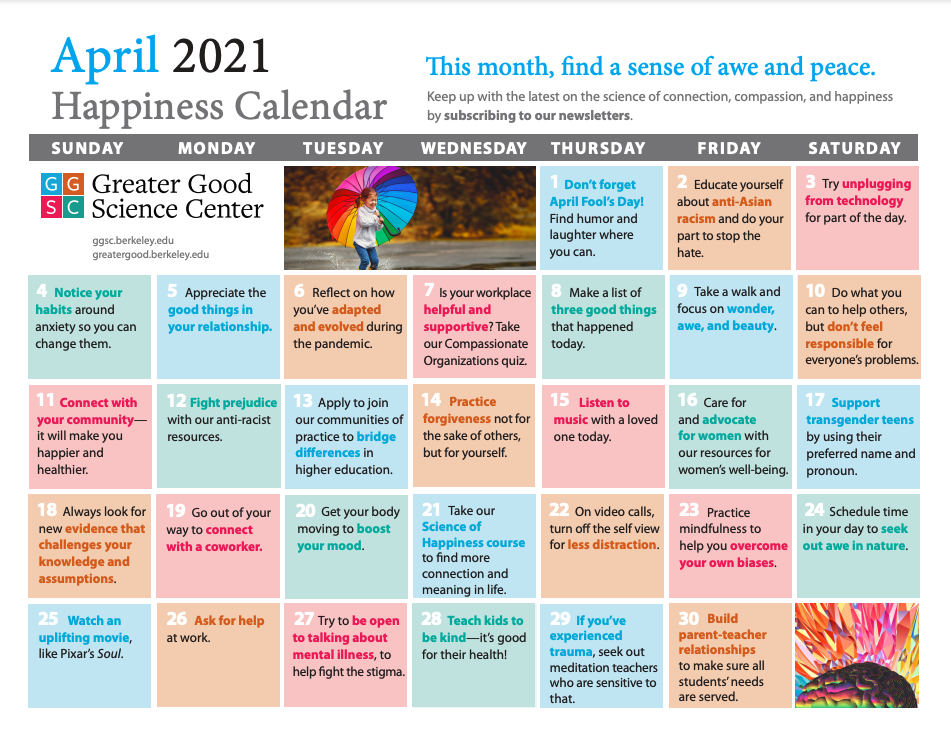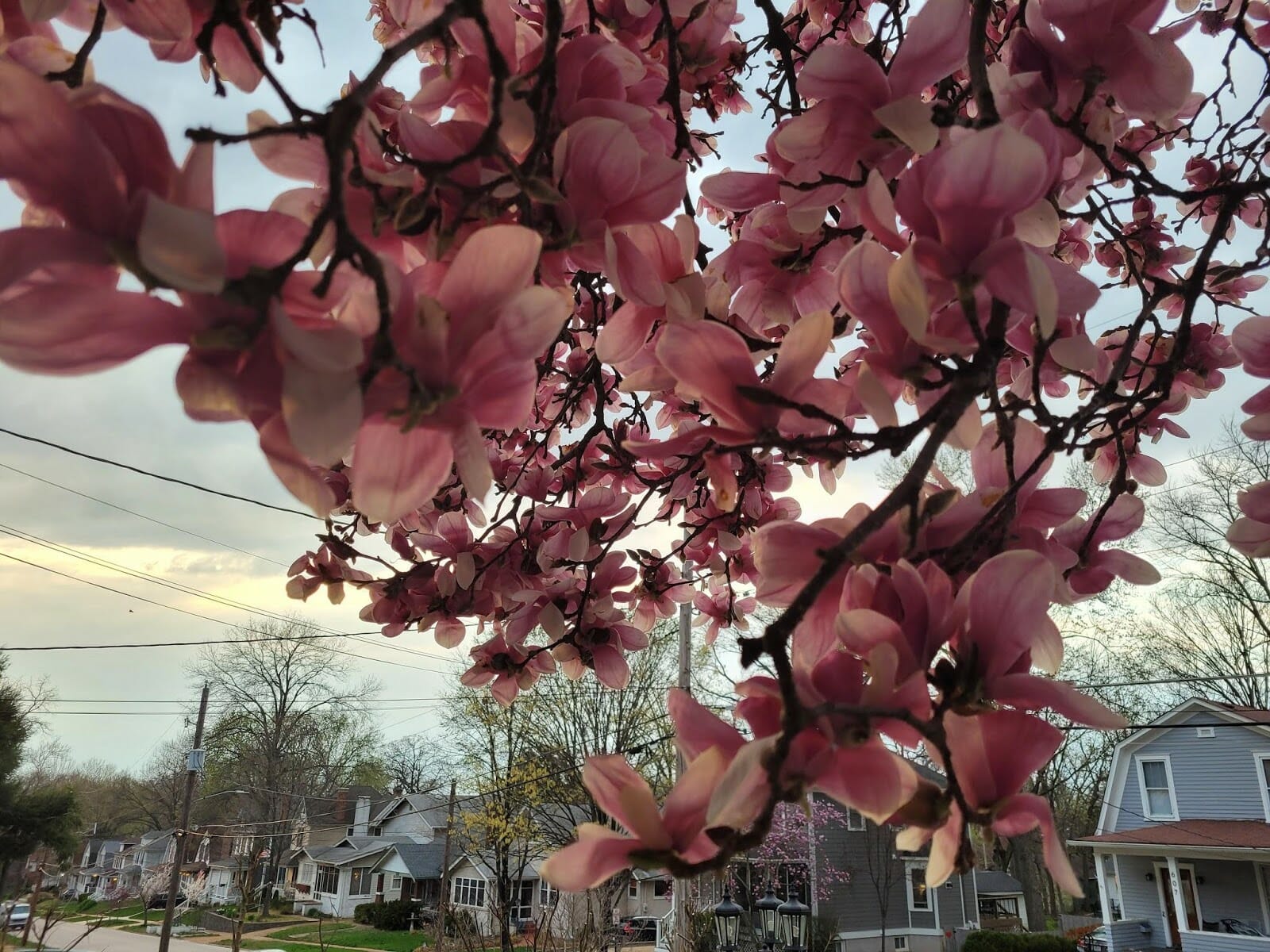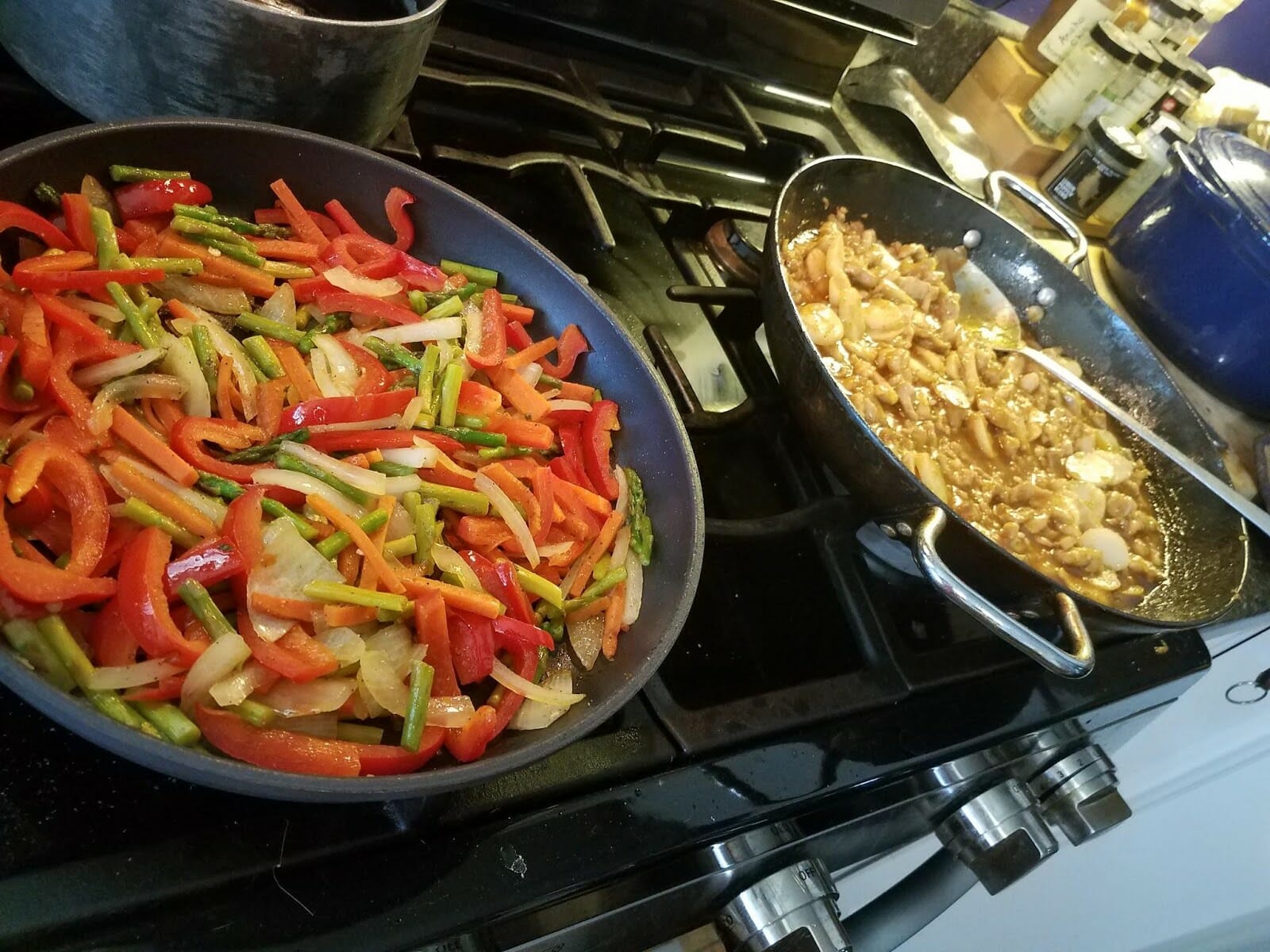Lessons To Bring With Us
 By David Hotaling, Upper School Counselor
By David Hotaling, Upper School Counselor
As we begin to slowly emerge from the constraints of the COVID-19 pandemic, I find myself looking forward to many of the simple pleasures of an unencumbered life, both at home and at work. The smell of popcorn as you walk into a movie theater, having an impromptu conversation with someone you just met, live plays and live music, or taking a couple of extra minutes over lunch because all the kids left the dining hall and there are only a few adults left, and it’s just so chill… These small pleasures and many more like them will slowly become more accessible to all of us (fingers and toes crossed).
And while I don’t know anyone who has had a fabulous time these past 13-or-so-months, I’m sure most of you have had conversations with friends and family about the positive elements of more limited mobility and less contact with others. Although I’ve recognized these positives throughout the year I was still somewhat surprised with both the number and significance of these “silver linings” when I started to list the ones that have affected me. Here are a few that have been important to me and lots of people I know:
- Appreciation of nature (More on this from Mindful.com)
- The need to move our bodies daily
- Getting enough sleep and rest – from Sleepfoundation.org: Sleep is critical to physical health and effective functioning of the immune system. It’s also a key promoter of emotional wellness and mental health, helping to beat back stress, depression, and anxiety.
- Pets!
- Taking time to plan and prepare good food
- Varying our activities to avoid Zoom and electronic burnout (puzzles, games, cleaning out a closet, home and garden projects)
- Minimizing «stuff» at home – «Does this 15-year-old, ill-fitting sweatshirt spark joy?»
- Breathing and mindfulness – maybe the easiest and most effective thing you can do in a moment of distress or frustration
- Being patient with ourselves and others – pandemic memory and focus just isn’t the same thing as pre-pandemic memory and focus. And Zoom fatigue is real!
Not surprisingly, many of these activities and approaches mirror what we know from research are best practices for preventing and treating mild to moderate depression and anxiety. Even as our activities of daily life shift a bit, there’s no good reason for us to let go of some of these things that help our mindset and our mental health.
In my role as Upper School Counselor I espouse the virtues of most of the things on this list as well as other elements of self-care and self-compassion whenever I can. I’ve always emphasized to students that they should make adjustments in areas where they have some control since there are often other areas over which they have very little control. Counseling during the pandemic has only amplified the importance of doing so. A short list of my go-to suggestions to students:
- Get regular exercise and get outside
- Spend time with people who you feel good being around
- Find a creative outlet (drawing, music, journaling, etc.)
- Talk things out with a trusted friend or adult (get it out of your head)
- Manage your time so you can get enough sleep
- Take breaks from schoolwork but keep them brief if you have a lot to do
My Student Support colleagues and I have had to make adjustments during this past year (like everyone) and some of them have been advantageous in a way that we’ll look to continue even as restrictions get lifted. Some of the Student Services practices we’ll likely continue post-pandemic include:
- Ability to meet with parents more efficiently through Zoom
- More student resources available online through Student services Canvas modules
- Modules with multiple links include:
- Accessing Student Support
- Social-Emotional Resources and Mindfulness Resources
- COVID-19 Specific Resources for Students
- Anxiety Resources
- Healthy Decision Making Resources
- Physical Activity and Wellness Resources
- Meeting with small groups of students remotely
- Creating videos for sharing of information via assemblies or email
The coming months should give us all an opportunity to think about what’s important to us, what’s worked well as we’ve worked through this challenging time, and make good choices about what to leave behind and what to bring with us.
“Self-compassion is simply giving the same kindness to ourselves that we would give to others.”
-Christopher Germer
Want more? Here’s another excellent resource for staying connected and keeping a positive mindset:
The Greater Good Science Center in Berkeley, California produces a Happiness Calendar each month that includes quick tips and links to resources each day that relate to activities and habits that are research-based to help us to be better connected to ourselves and others. Here is the link for April 2021.



